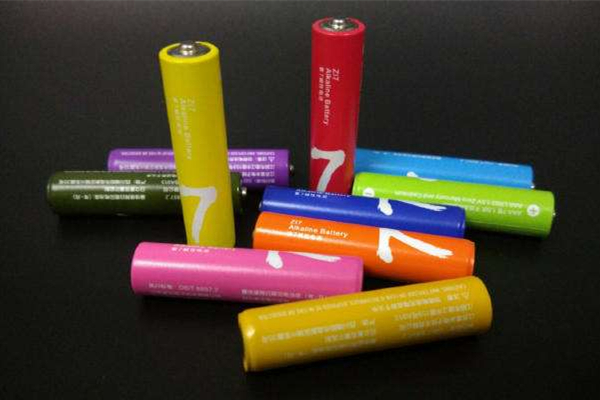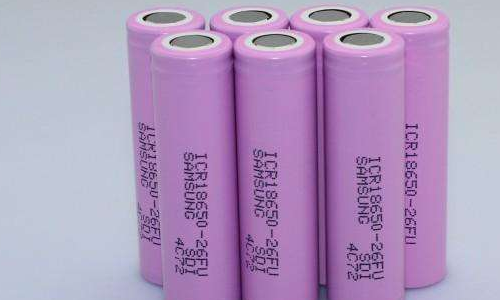Do lithium polymer batteries have a memory?
Nov 22, 2019 Pageview:3690
The memory effect, which is also known as the battery effect, the lazy battery effect or battery memory effect, occurs in rechargeable nickel-cadmium and nickel-metal hydride batteries, and it results in the batteries holding a reduced charge. It is a state in which the nickel-cadmium or nickel-metal hydride batteries systematically lose their maximum energy storage capacity when the batteries are repeatedly charged after it has been partially discharged (for instance, if the battery is discharged to 60%, when it is recharged, the battery remembers and somewhat returns to the former -60% capacity). The battery is said to have "remembered" the previous minimum capacity.
What kind of batteries has a memory?
Users of nickel-cadmium and nickel-metal hydride batteries are mostly aware of the memory effects of such batteries. If the battery is charged several times after partial discharge, the battery gradually loses its useful capacity due to a reduced operating voltage. For lithium-polymer batteries, however, there is little to no memory effect. Now, let’s discuss each of the batteries affected by the memory effect.
Nickel-cadmium (Ni-Cd)
The Nickel-cadmium (otherwise known as the Ni-Cd) batteries have been the standard battery technology for years, but they are now outdated and no longer used in most modern laptops or devices. They are both heavy and are subject to "memory effect" issues. If you charge a NiCad battery that is not yet fully discharged, it will remember the previous charge and continue from that charge upon the next use. The memory effect is a phenomenon caused by the crystallization of various substances in the battery and can reduce its lifespan, or even make it unusable.
To prevent this, the battery must be fully discharged and recharged at least once every few weeks. Since this battery contains cadmium, which is a toxic material, the battery must always be disposed of properly or at least, properly recycled.
The memory effect indicates that a battery that is only partially discharged before being recharged can still be used further before its recharging begins.
Nickel Metal Hydride (Ni-MH)
Another battery that suffers the memory effect is the Ni-MH batteries.
The cadmium-free replacement for NiCad batteries is the Nickel-metal hydride (or Ni-MH) batteries. On their own, they are less influenced by the memory effect against the NiCad batteries and therefore they require less conditioning and maintenance. They, however, have some problems at very high or low room temperatures. And although they use less dangerous materials (i.e. they are not made of heavy metals), so far, it is still not possible to completely recycle them. Another important difference between NiCad and NiMH is that the NiMH batteries have a higher energy density than the NiCad batteries. This means in essence, the capacity of NiMH batteries is around two times that of its NiCad counterpart. What this means for you is that you get to have a longer battery life without additional weight.
Upon the introduction of nickel-metal hydride in the early 1990s, the chemistry upon which it operated was promoted to be memory free, but that wasn’t a complete fact. Even NiMH is subject to the memory effect, but a lesser extent than the NiCad. And, while NiMH should only worry about nickel plates, NiCad also contains the memory-sensitive cadmium negative electrode. Well, this is an unscientific explanation of why nickel-cadmium batteries are more subject to the memory effect than nickel-metal hydride batteries.
Do lithium polymer batteries have a memory?
Unlike the NiCad batteries, lithium polymer batteries have no proven memory effect issues –at least for now. In other words, there is no need for deep discharge cycles for your lithium polymer or LiPo batteries. As a matter of fact, it is preferable that you subject the battery to partial discharge cycles.
However, there is an exception. Battery experts have recommended that it is fine to completely discharge your lithium batteries after about 30 charge cycles. Continuous partial discharge of the battery will create in it, a condition called ‘digital memory effect’. This is a condition that reduces the accuracy of the display of your device of the battery charge in it. Therefore, it is suggested to allow the battery to completely discharge to the point of shutdown or cut-off, then recharge it. The power display will then be recalibrated.
What is the memory effect on a lithium polymer battery?
Many of our daily devices that require electrical energy to function make use of energy from a battery. Although not always as "smart" as advertised, some of these batteries are often equipped with a type of memory. An electric shaver for instance or an electronic toothbrush that has been partially charged before the battery is drained could take bitter revenge on its prudent user. The battery then seems to remember that you only used a part of its storage capacity and consequently, it gives you what is left of the previous charge –even after you recharged it to maximum capacity. This is a memory effect hitting a battery user at its worst.
Lithium polymer (as well as lithium-ion) batteries are known to be batteries that can power high-performance energy devices and lots of electronic devices used in many commercial facilities. These batteries can certainly store a large amount of energy albeit in a relatively small volume of battery. They have so far not been significant proof that these batteries majorly suffer from the memory effect phenomenon.
However, researchers at the Paul Scherrer Institute PSI, as well as colleagues at the Toyota's research laboratories in Japan, have claimed their new findings prove that a widely used type of lithium-ion battery (so far, not lithium polymer battery) suffers from the memory effect. This discovery is particularly important for the progress in the advancement in the use of lithium-ion batteries in various sectors, especially in the electric vehicle market.
However, this effect so far, still has very little to no effect in the functioning of the lithium-ion batteries and is still incomparable to the memory effect found in the older NiMH batteries, so while the lifespan of NiMh-cells are affected by memory effect, the effect so far detected in lithium batteries have little to no effect on them.
- Prev Article: Do lithium batteries expire?
- Next Article: Do magnets affect lithium batteries?
Leave Message
Hottest Categories
-
Hottest Industry News
-
Latest Industry News











